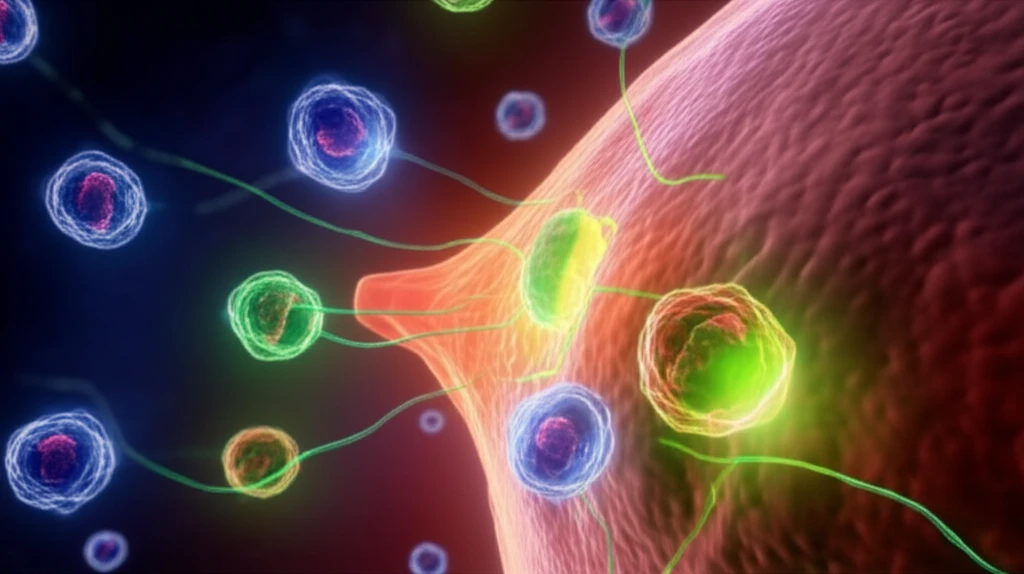
TILs: A Personalized Approach to Conquering Breast Cancer
"A breakthrough in adoptive immunotherapy offers new hope for patients with metastatic breast cancer resistant to conventional treatments."
Breast cancer, especially in its metastatic form, remains a significant challenge despite advancements in treatment. When standard therapies like chemotherapy fail, the need for innovative approaches becomes critical.
Now, research published in Nature Medicine highlights a promising avenue: adoptive immunotherapy using tumor-infiltrating lymphocytes (TILs). This personalized approach has shown remarkable success in a patient with metastatic ER+HER2- breast cancer that had become resistant to chemotherapy.
This article explores how this groundbreaking treatment works, why it's so effective, and what it means for the future of cancer therapy.
How Personalized TIL Therapy Works

The approach, led by Feldman and colleagues, centers around harnessing the power of the patient's own immune system to fight the cancer. Here's a breakdown of the key steps:
- TIL Extraction and Expansion: Tumor-infiltrating lymphocytes (TILs) are extracted from the patient's tumor tissue. These are immune cells that have already recognized and infiltrated the tumor.
- Ex Vivo Expansion: The extracted TILs are expanded in the laboratory (ex vivo) to generate a large population of cells capable of mounting a strong attack against the tumor. In this case, over 80 billion TILs were grown.
- Re-infusion and Immune Boost: The expanded TILs are then re-infused back into the patient. This is often combined with treatments like IL-2 (a cytokine that boosts immune cell activity) and pembrolizumab (an antibody that blocks the PD-1 co-inhibitory molecule, unleashing the T cells' killing potential).
- Neoantigen Recognition: Researchers identified that eleven clonotypes of the re-infused TILs recognized four different tumor neoantigens. Notably, these TILs persisted long-term in the patient, for at least 17 months.
The Future of Cancer Treatment: Personalized Immunotherapy
This case demonstrates the remarkable potential of personalized TIL adoptive-transfer in achieving beneficial results for patients with advanced cancer. By tailoring the treatment to the individual's specific tumor mutations and immune response, this approach overcomes the limitations of traditional therapies.
While this is a single case study, it provides a strong rationale for further research and clinical trials to explore the efficacy of TIL therapy in a broader range of cancers and patient populations.
As our understanding of the immune system and tumor biology deepens, personalized immunotherapy approaches like TIL therapy are poised to revolutionize cancer treatment, offering hope for durable remissions and improved outcomes.
